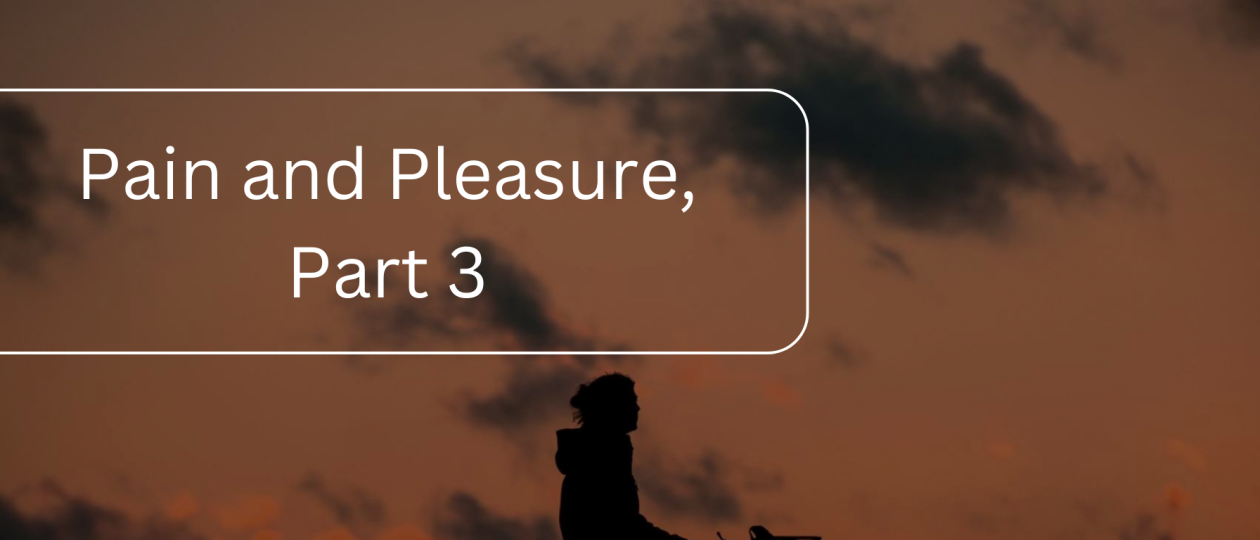Pain and Pleasure, Part 3
Welcome back once again, everyone! Let me first say that I’ve felt personally challenged by our ongoing topic of the past couple of weeks, and I’m grateful to all of you who stuck with me. You may have noticed this by the way I keep ending these posts with a conclusion about what not to do, rather than a proper solution. But I hope this time that we may arrive on firmer ground.
I think our postulate from last week is a good place to start. I’ve often said that our principles of love in the present moment absolutely do not serve as an escape from pain. Love is often painful, and although I believe it leads to far greater pleasure and fulfillment in the long run, and often calls on us to accept and confront more discomfort up front.
To put it another way, pain and pleasure are a part of our life’s cycle no matter whether we choose to pursue love or yield to fear—but fear serves that cycle, while love masters it. Fear leads to a vicious cycle of isolation and self-harm, while love edifies, enriches, and connects us to others. But to return to our initial topic: when love requires confronting pain and fear, how are we to make it a habit which is not dependent on our limited willpower?
I’m afraid the answer cannot be as simple as a few rote bullet-points. But I think there is a conceptual answer which can apply pretty universally. One of the central tenants of my work is that of conflicted beliefs—that a person can have multiple conflicting, possibly unconscious beliefs which create a conflict in their actions or conscious mind. In nearly all cases, I’ve found that these conflicts tend to originate from wrong beliefs and errors in a person’s conscious or unconscious memories. Often, the falseness in these memories is not the event itself, but the conclusion drawn from it.
Take for example, the occasion when my father beat me and told me I would never amount to anything (which was especially striking, because he was otherwise an excellent father. At the time, he probably snapped because he had just received some very bad medical news). That event really happened, the lie I believed was that he was right, and because he said that, I would never amount to anything. That lie haunted me for years; it nearly became true.
I think that much of our desire to do wrong comes from wrong beliefs, and that an effort to live in love is also, unavoidably, an effort to live in truth. To put it another way, there are few larger drains on our limited reserve of willpower than attempting to do things that are contrary to our beliefs, even our wrong beliefs, even our beliefs which we know are wrong. Beliefs govern actions. And the more we bring our beliefs into line with truth and love, then the less we will find ourselves wanting to subvert them.
So what does this look like in our day-to-day lives? Of course, my work deals quite a lot with changing wrong beliefs, but you all know that and I want to look more closely at walking in our shared spiritual life. Put simply, if we are to escape our reliance on willpower, then love and truth must become our dwelling place, not simply a day-job. Of course, our conscious will must have a part to play in that, but it is relationships that contextualize and provide a conduit through which love may flow. Loving and intimate relationships should be not just a high priority (this term implies that it is a task), but the foundation on which we live, work, and rest.
Have a blessed, wonderful day!
Dr. Alex Loyd




Add a Comment